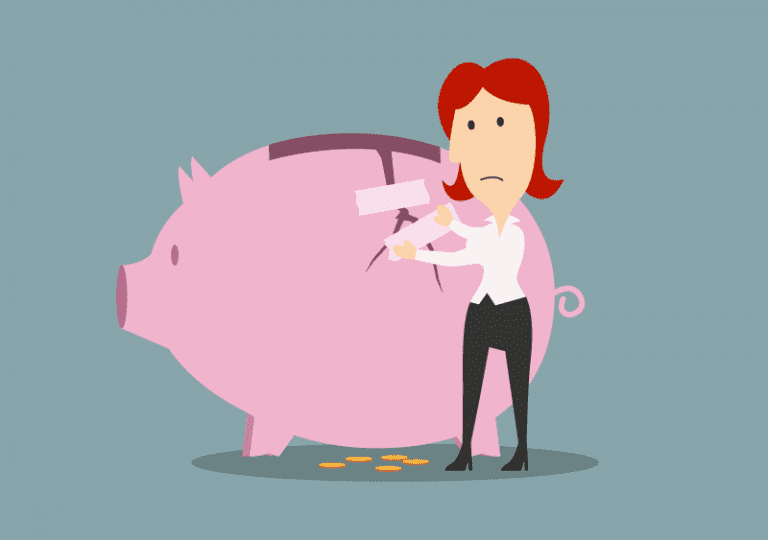Surviving a Husband’s Death and the Aftermath of Debt
The floor under Alice Stephens’s life collapsed on Christmas Eve, 2010, when her husband of 34 years, Phillip, died of a sudden heart attack. Now a widow, she was deeply bereft and completely unsure what to do next.
Like so many people whose lives are thrown into disarray, Stephens was unprepared for the decisions she would have to make. Though she and her husband had health insurance through his work as an accountant, Stephens was shocked to learn that she only had a week to decide whether begin paying much higher premiums under Cobra, the government-mandated extension of coverage.
“I was told that to continue insurance under Cobra I would have to pay $390 a month,” she said. “It was too much.”
Stephens, 62, said she had just one week after Phillip’s death to make a life-altering decision. She opted to drop the health care coverage, even though she wasn’t working herself and had high medical bills for treatment of depression and bipolar disorder. She said she qualified for Medicare coverage, but it didn’t cover everything.
“I had one medicine that cost me over $400 a month by itself,” said Stephens, who lives in Grayson, Ky. “I was seeing a doctor and a psychologist, which was very expensive.”
It happened so quickly. She went from marriage and a six-digit income to a personal struggle to make ends meet on $1,500 a month in Social Security.
Though the couple’s house was paid off, Stephens said her costs quickly became difficult to manage. She received some money from a life insurance policy and had a $70,000 retirement account, but the costs were eating into the nest egg.
As the months passed, maintaining a four-bedroom house dug into her savings as it gobbled up her Social Security checks.
“The money lasted three years,” she said. “I had a couple hospitalizations during that time, and that meant bills.” Medicare covered 80 percent of the costs, she said, but she had to pay the rest.
Stephens did what people do: She started using credit cards without a clear idea how she would pay them off. Every month the unpaid balances grew in tandem with Stephens’ anxiety.
“I kept it from my children,” she said. “They were mad at me when they found out, mostly upset that I put myself in that position without saying anything.”
Though her three kids were grown, she said she was too embarrassed to tell them about the financial hole she was digging. Though she had never missed a payment on her borrowed money, she knew things would get worse if she continued the same trajectory. Though she kept up with minimum payments, her balances rose.
“I’m very strict about paying,” she said. “I would skimp on my food before I would miss a payment.”
Over several years, Stephens had racked up about $22,000 on her cards and a bank loan with a balloon-interest payment plan. At that point, she understood she was in a financial death spiral. In despair, she talked to her daughter about her increasingly grave problem.
Financial Help for Widows
Her daughter, who had once suffered credit problems herself, told her about the lifeline she used to pull free from crippling debt. It was a debt relief company called InCharge Debt Solutions. Stephens was impressed and promised to give InCharge a try. The decision, she said, saved her from financial catastrophe.
Stephens called InCharge in 2014 and told her story, telling a counselor that without help her debts were certain to completely overwhelm her. After a short conversation, InCharge went to work on a debt solution.
“They were very sympathetic,” she said. “They told me they were there to help.”
InCharge consolidated her payments and worked with her creditors to reduce what she owed and accept a lower interest payment on the balance.
“They reached agreements with each one of my creditors and my monthly payment went down dramatically,” Stephens said. Her son, a school teacher, moved in and helped shoulder the household expenses. Stephens began giving piano lessons to add to the payment fund, and she made arrangements with pharmaceutical companies to reduce the cost of her prescriptions.
It took a lot of discipline, but three years later she got the help with debt she needed: she’d paid off everything and was debt free.
“Through the whole process, I never had a late payment,” she said. “I don’t know how I managed it, but I ended up feeling pretty good about myself.”
And she found she could sleep much better.
“I had been under overwhelming stress,” Stephens said. “Getting out from under it feels like a tremendous accomplishment.”
Stephens said she no longer uses credit cards, has a FICO score of 725 and doesn’t envision borrowing money again, with one exception.
“I might need a new vehicle in a few years,” she said. “Other than that, I’m in good shape.”

